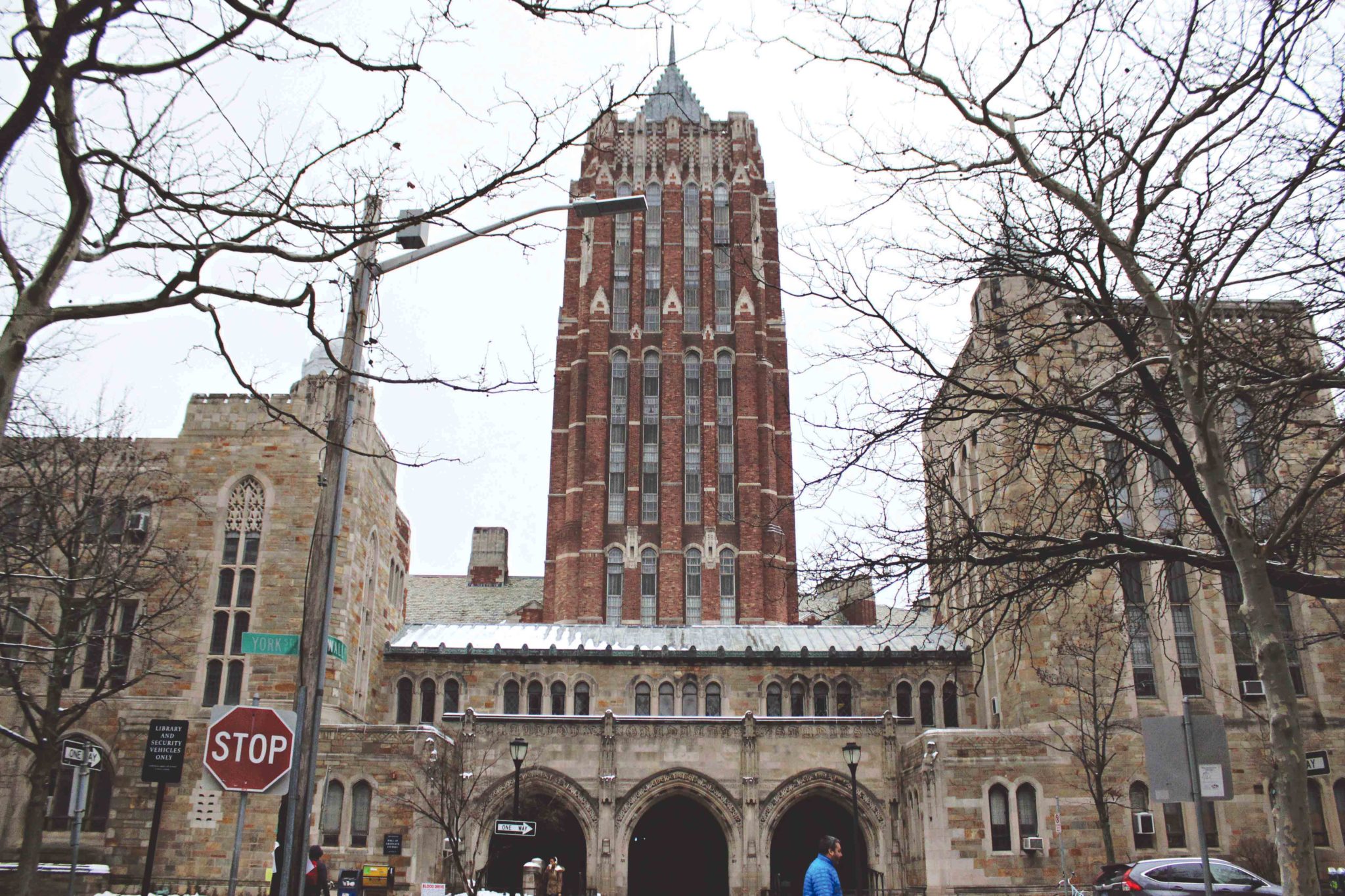
Yale Daily News
Early in the morning of May 8, 2018, Lolade Siyonbola GRD ’19 was taking a nap in a twelfth floor Hall of Graduate Studies common room adjacent to Sarah Braasch’s GRD ’20 dorm – amidst her computer, books, notebooks, blanket and pillow – when Braasch called the Yale Police Department’s non-emergency line about an unknown figure sleeping in the room.
Siyonbola said she had been working on a paper when she fell asleep in the HGS common room. Braasch later entered the room, turned on the lights and said, “You’re not supposed to be sleeping here. I’m going to call the police” according to Siyonbola. Yale Police Department officers arrived around 1:45 a.m. and began to investigate Siyonbola’s status as a Yale student.
“I deserve to be here. I pay tuition like everybody else,” Siyonbola said after YPD officers asked for her Yale ID, according to a video she recorded of the incident. “I’m not going to justify my existence here.”
Siyonbola recorded her 54-second encounter with Braasch, who reiterated that she had “every right to call the police.” Siyonbola also recorded her 17-minute encounter with the police on Facebook Live. The second video has garnered 1.6 million views on Facebook.
This process, which involved looking at her student ID and verifying her name in YPD’s database, took longer than usual because of differences between Siyonbola’s preferred and official names, according to Yale Police Chief Ronnell Higgins. YPD also had Siyombola unlock her dorm room door to confirm that she lived in HGS, Siyombola said.
According to Higgins, the officers told Braasch that her complaint was not a police matter and that they would report the incident to Graduate School of Arts and Sciences Dean Lynn Cooley. Two months prior, in March 2018, Braasch had called YPD to investigate a “suspicious character” in HGS: Black graduate student Jean-Louis Reneson GRD ’19.
In an email to graduate students, Cooley said that the incident was a reminder to the school that inclusivity must be more emphasized.
“Incidents like that of last night remind us of the continued work needed to make Yale a truly inclusive place,” Cooley wrote. “I am committed to redoubling our efforts to build a supportive community in which all graduate students are empowered in their intellectual pursuits and professional goals within a welcoming environment. An essential part of that effort must be a commitment to mutual respect and an open dialogue.”
Braasch denies any wrongdoing and rejects the notion that the incident was racially motivated in any way. She has repeatedly commented that the allegation runs contrary to her lifelong civil rights and humanitarian career.
University President Peter Salovey sent the Yale community an email of his own the next day, maintaining Yale’s commitment to equity and inclusion on our campus. He wrote that he met with multiple University leaders to address the challenges Yale faces in ensuring an inclusive environment on campus.
“Universities are not utopias, and people of color experience racism on our campus as they do elsewhere in our country,” Salovey wrote. “This fact angers and disappoints me. Each of us has the power to fight against prejudice and fear. I hope you will join me in doing so.”
The University held multiple listening sessions, open to members of the Yale community, to figure out how to move forward. Many alumni criticized these sessions, saying they were useless without additional action.
Within two weeks of the incident, over 3,000 people signed a petition demanding Braasch’s removal from Yale.
“We call on [Salovey], [Cooley] and Yale University Secretary and Vice President for Student Life [Kimberly] Goff-Crews, to remove Braasch from Yale because her stated philosophy is one that violates the moral and intellectual codes of the University; because her multiple counts of harassment and racism against other students violates the safety of students of color,” read the petition. “Students of color at Yale should not be re-traumatized by seeing Braasch on campus this fall.”
While Braasch was not expelled from Yale, the University did implement changes to its policies. Cooley outlined five other changes in an email to graduate students, including implicit-bias awareness training for all GSAS staff workers, an implicit-bias awareness training session for all incoming graduate students and community-building sessions in graduate student dorms.
The University also brought on Vice President for the Office of Institutional Equity at Duke University Benjamin D. Reese Jr. to conduct an external review of Yale’s policies regarding racial discrimination and harassment. His report was released in the spring of 2019.
“I endorse the main findings of the report and have decided to adopt its key recommendations,” Salovey said in an April 10, 2019 University-wide email.
These changes included renaming and expanding the Office for Equal Opportunities and Programs, and hiring a new deputy secretary to implement diversity initiatives throughout the University.
Last year, Braasch filed a Freedom of Information Act request to obtain Yale Police Department officers’ body camera footage of her from the incident. The Freedom of Information Commission ruled against Braasch last summer, recommending that the state deny her access to YPD’s body cam footage.
The Yale Hall of Graduate Studies, now known as the Humanities Quadrangle, is located at 320 York St.







